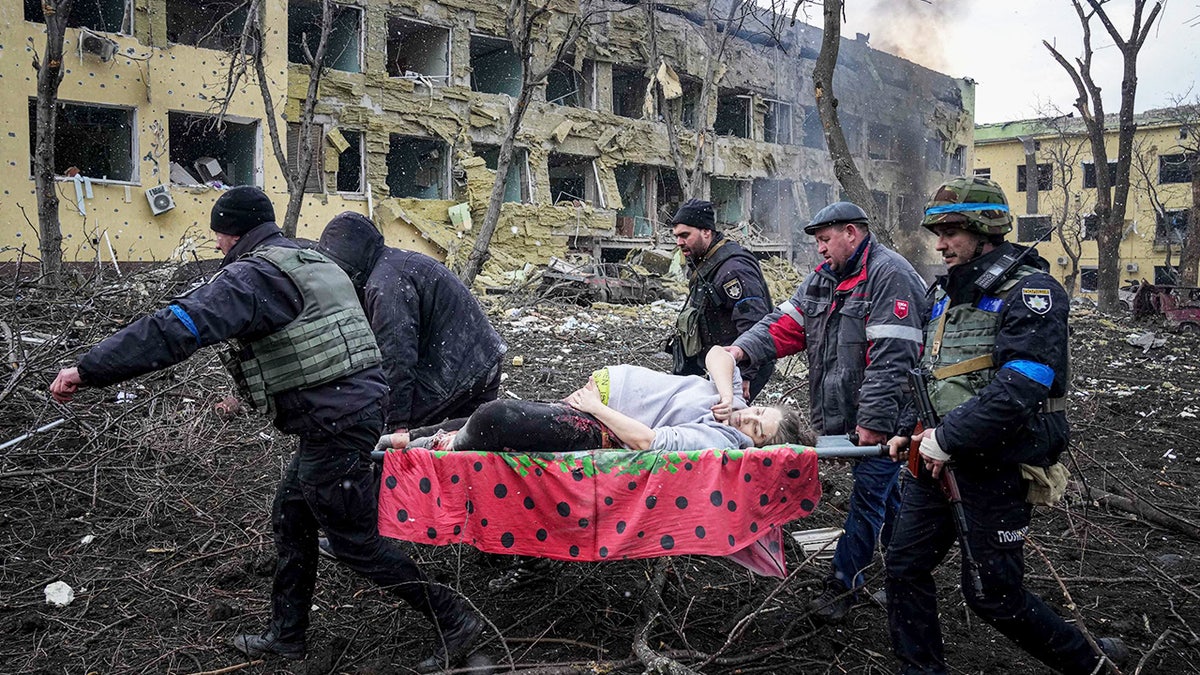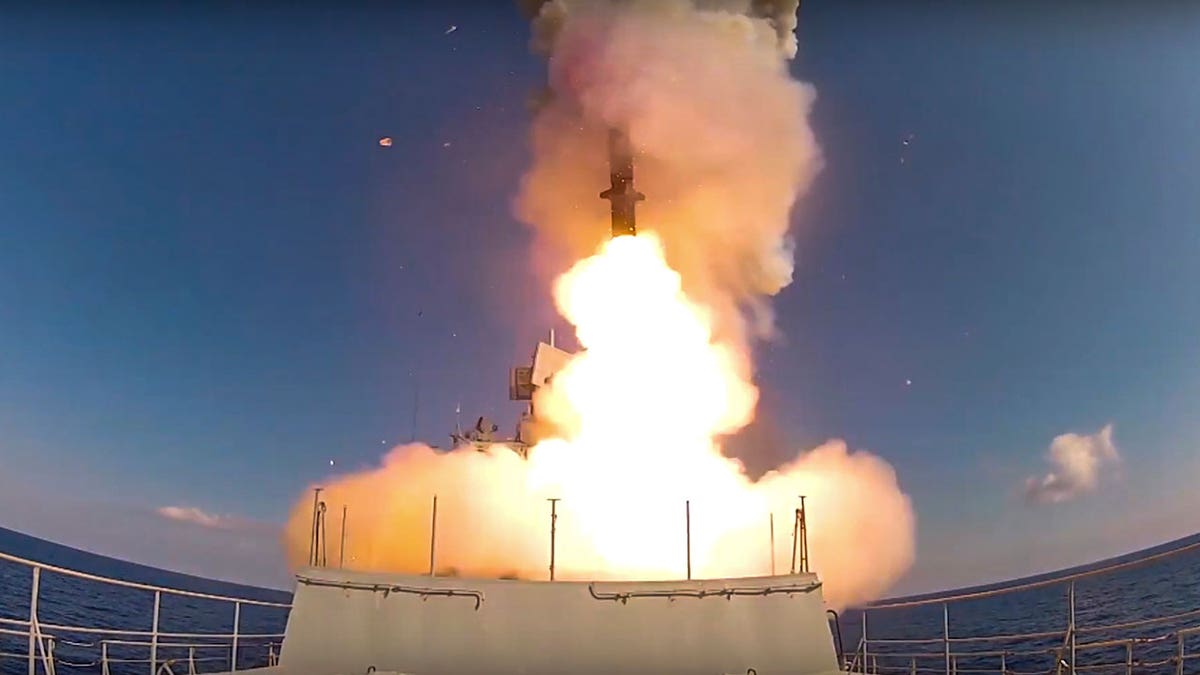More European nations could get sucked into war if Russia conducts a false flag operation in – or near – Ukraine, a retired Navy captain and former intelligence officer told Fox News.
"I think there is still risk of more expansionism," Steven Horrell said. "There's a risk of something sparking an escalation, some sort of incident on the high seas, or in international airspace, or a fabricated incident for some sort of cross-border thing that could lead to further escalation."
Friday marked the 16th day of fighting since Russian President Vladimir Putin launched a full-scale war against Ukraine. The U.S. had previously warned that Russia could use a phony pretext as grounds for the invasion. More recently, national security adviser Jake Sullivan said Russia was falsely claiming that Ukraine was preparing a chemical weapon to justify a chemical attack of its own.
BIDEN SAYS PUTIN HAS ‘FAILED’ ON MULTIPLE FRONTS WITH UKRAINE INVASION: LIVE UPDATES

Ukrainian emergency employees and volunteers carry an injured pregnant woman from the damaged by shelling maternity hospital in Mariupol, Ukraine, (AP Photo/Evgeniy Maloletka)
"I think Russia has for some time held the opinion that the West, the U.S. [and] NATO have a very low tolerance for cost and for pain," said Horrell, who's now a nonresident senior fellow with the Transatlantic Defense and Security Program at the Center for European Policy Analysis. "And, conversely, that Russia has a much higher cost acceptance."
Horrell said Russia's high tolerance for loss, combined with the Kremlin’s doctrine of "escalate to deescalate," could spell trouble for Western Europe.
"A ship in the Black Sea with the Kalibr land attack cruise missile could reach Berlin," Horrell told Fox News. "If they viewed one of the European capitals as being a weakness in NATO, they could do that sort of escalation, non-nuclear, but they could strike outside the immediate theater of conflict and start hitting native targets."

In this image provided by Russian Defense Ministry Press Service and released on Friday, June 23, 2017, long-range Kalibr cruise missiles are launched by a Russian Navy ship in the eastern Mediterranean. The Russian invasion of Ukraine is the largest conflict that Europe has seen since World War II, with Russia conducting a multi-pronged offensive across the country. The Russian military has pummeled wide areas in Ukraine with air strikes and has conducted massive rocket and artillery bombardment resulting in massive casualties. (Russian Defense Ministry Press Service via AP, File) (Russian Defense Ministry Press Service via AP, File)
GRASSROOTS GROUP SEEKS TO CALL MILLIONS OF RUSSIANS TO CHANGE OPINIONS ON KREMLIN WAR WITH UKRAINE
Even as the threat of a possible Russian strike outside of Ukraine looms over Europe, Horrell told Fox News the Kremlin vastly miscalculated its ability to overtake Ukraine.
"I think the decision makers in the Kremlin truly believed some of their own press reports and expected a quick and hasty victory," Horrell said.
IRAN NUCLEAR TALKS SCREECH TO A HALT AMID NEW RUSSIAN DEMANDS
"There are no indications of more forces reinforcing the current force commitment from Russia to Ukraine," he continued. "Frankly, I don't know how many more cards in that regard there are to play."

Steven Horrell, Nonresident Senior Fellow, Center For European Policy Analysis (Fox News Digital)
CLICK HERE TO GET THE FOX NEWS APP
Since the invasion began, Ukrainian defense forces have defied Western intelligence estimates, which reported Kyiv could fall within 72 hours of a Russian invasion.
Horrell told Fox New that while there is a still a chance Ukraine prevails in the war, in the long-term, Russia still appears to have the upper hand.
"I think there is still a chance that there will not be regime change in Kyiv," Horrell said. However, a long, slow war of attrition still is in Russia's favor."


